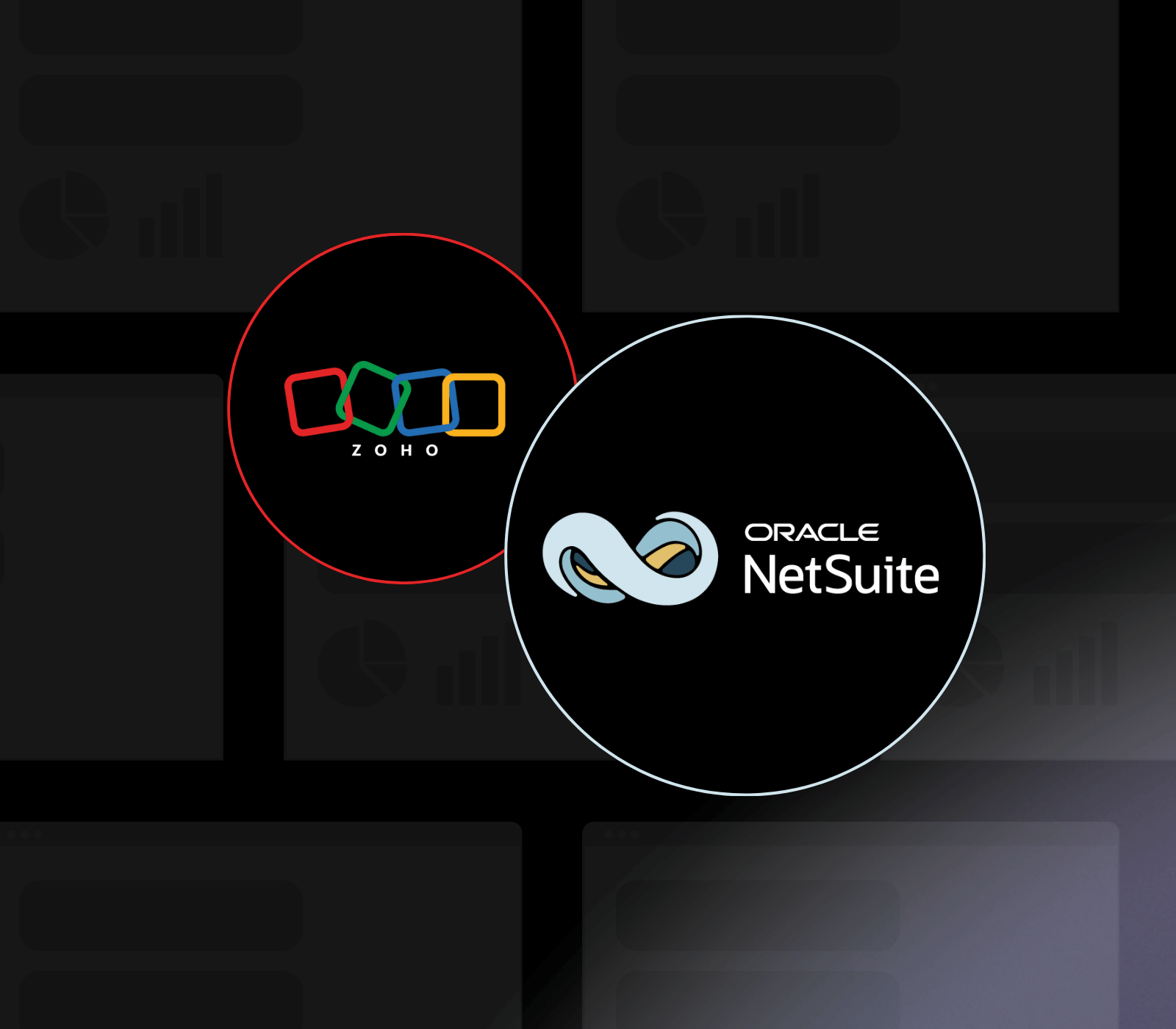Why businesses upgrade to NetSuite
-
One system, no silos
NetSuite brings finance, inventory, CRM, planning and more into a single cloud platform that finally rids you of disconnected modules and data duplication.
-
Built to scale
Handle growth confidently with native support for multi-entity, multi-currency and global compliance, all backed by a strong financial core.
-
Deep functionality by design
Where Zoho relies on third-party plug-ins, NetSuite delivers depth natively-reducing risk, simplifying upgrades and enabling faster decisions.
Understanding NetSuite vs Zoho
-
See NetSuite ERP in action
There’s no better way to explore how NetSuite ERP can benefit your organisation than by experiencing it firsthand.Request a product tour
Questions to ask before you choose
Yes. Zoho’s modular tools work for simpler operations but growth quickly exposes integration gaps and data silos. NetSuite provides a unified platform designed to scale with your business and maintain consistency as complexity increases.
NetSuite supports powerful low-code configuration alongside deep developer extensibility, enabling flexible adaptation without code sprawl. Zoho’s customisation relies more heavily on coding and often requires workarounds or maintenance-heavy scripting.
NetSuite gives you a single source of truth across finance, sales, inventory and more with built-in analytics and reporting. Zoho requires connecting separate apps which can lead to inconsistent or delayed insights.
Yes. NetSuite is designed for growing and complex businesses with multiple entities, currencies, geographies and teams. It includes native support for consolidated reporting, global compliance, multi-language UI and multi-currency transactions- all from a single login.
NetSuite includes native dashboards, saved searches and scheduled reports, plus advanced options via NetSuite Analytics Warehouse. Zoho offers basic reporting features within each module but lacks cross-functional visibility without custom integration.
NetSuite provides twice-yearly upgrades with automatic version control across all modules. In contrast, Zoho upgrades can require manual work and don’t always maintain compatibility between modules, creating extra overhead.
Zoho offers modular tools that can be combined to create a business management system. But each module is a separate app with its own configuration and upgrade cycle. NetSuite is a unified cloud platform built from the ground up, giving you one system for finance, CRM, inventory and more.
NetSuite supports deep customisation using its SuiteCloud platform. This includes point-and-click tools for fields and workflows, as well as developer-level extensibility using JavaScript and REST APIs. Unlike Zoho Creator, NetSuite’s customisations are native, version-safe and compatible across modules.
A platform that grows alongside you
-
Smarter decisions, faster
Get accurate, real-time insights across every part of the business from a single source of truth.
-
Built for long-term scale
Support complex operations, multi-entity structures and evolving compliance needs without switching platforms again.
Frequently asked questions about NetSuite
Annexa runs a detailed scoping process to identify and migrate critical data. We extract and transform Zoho data into NetSuite’s structure, ensuring financial and operational continuity while minimising disruption to reporting and compliance.
Implementation timelines vary based on business complexity, but most Zoho-to-NetSuite projects take between 12-20 weeks. Annexa provides a full roadmap with planning, build, testing, training and go-live support phases.
Yes. NetSuite has an open integration framework and can connect with tools like Shopify, Salesforce, Power BI, and industry-specific platforms. Annexa also supports integration through middleware such as Celigo, Boomi and Workato.
NetSuite may feel more robust, but it’s not overly complex. It’s designed for clarity, consistency and user control. With Annexa’s implementation approach, you’ll only activate the modules and workflows you need – keeping things streamlined while allowing room to grow.
let’s chat
Start your journey with Annexa
Request a one-on-one meeting with an Annexa NetSuite expert to discuss your unique challenges and opportunities.
- ✓ NetSuite ecosystem experts
- ✓ Leaders in integration
- ✓ Award-winning team
- ✓ Strategic partner network
- ✓ Innovation always





